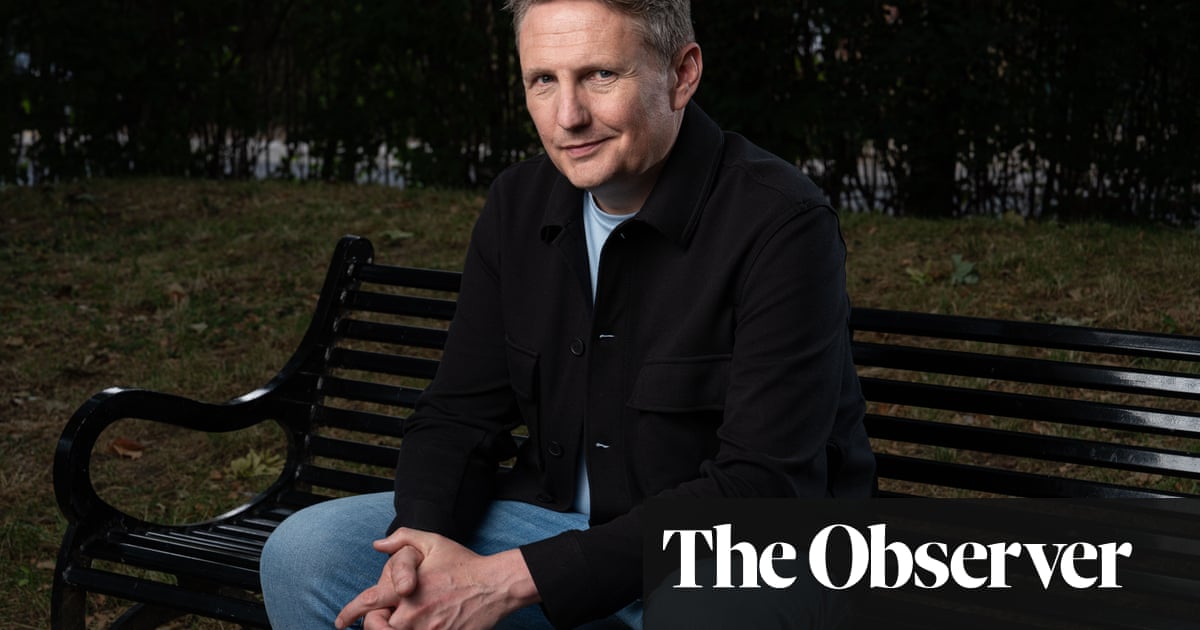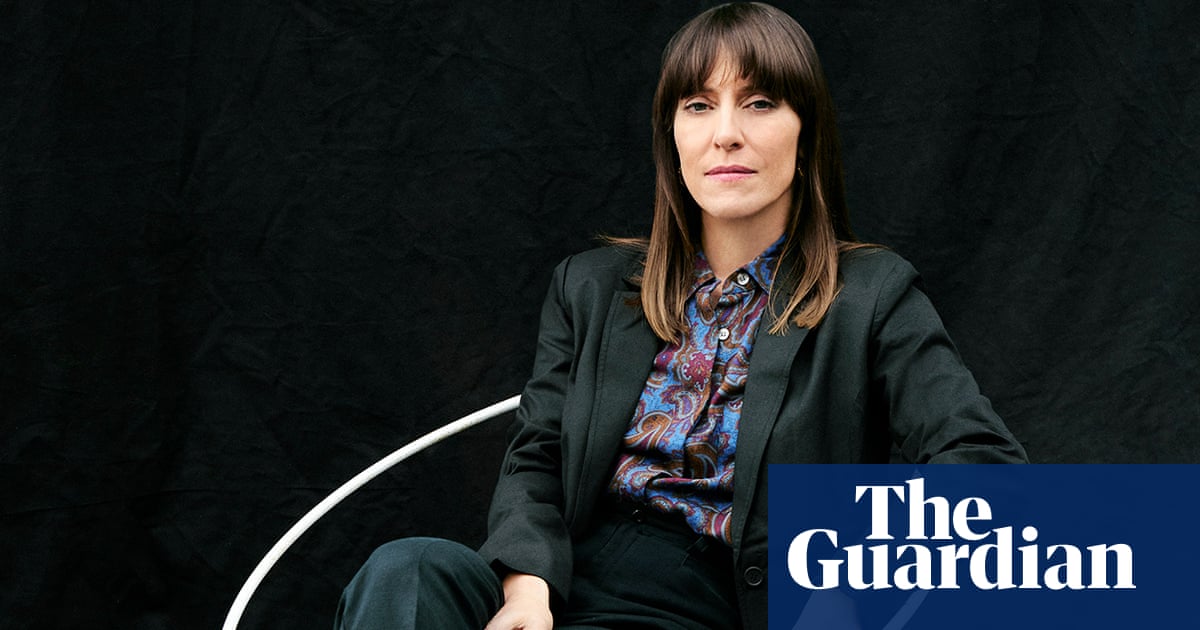
I’m not wild about house parties and this one isn’t convincing me otherwise. It’s midnight on a Friday and I’m texting my best friend from a darkened corner beside the fridge. “Sometimes I worry that I’m damaged goods,” I type, referring to my recent foray into the world of dating as a 30-something widow. I watch the WhatsApp ellipsis flash on my screen.
“What, like a used toothbrush?” he shoots back.
“Yeah,” I type with a smile. “All my bristles are in disarray.”
Exchanges like this are a regular occurrence in my world and they started pretty immediately after my husband died from a brain tumour in 2018. In those early days, sometimes a taut ad-lib was the only way I could quell the fire within. I wasn’t just angry at the death itself, I was angry at the dying I witnessed, the perversion of losing a person, bit by bit, like lights going out in a skyscraper of glowing rooms. Where do you put that kind of anger? I funnelled it into my witty repartee: down the pub, at the funeral parlour, on countless park benches.
“I’m channelling Raquel Welch,” I deadpanned to friends, mere weeks after my husband died. That evening I’d turned up wearing a newly purchased leopard-print dress knowing full well that my sarcasm was a stall kick, a way to wrestle back some kind of control. Jokes like this helped me salvage myself in the depths of my trauma, but they were also a way to challenge my surroundings. The sympathetic hair strokes from people I barely knew. The awkward head-tilts at hen do’s and birthday gatherings. The uncomfortable pauses I garnered whenever I mentioned my husband’s name.
“I remember some people being gobsmacked that we used to joke about it,” my best friend said when I reminded him of our text exchange. “But what else is there?” When you find yourself surreptitiously joking with your dead husband, the answer is pretty obvious: not much. In lieu of any rationalism, comedy can be a liberating tool in times of grief, a way to echo and mirror the absurdity of death itself. And believe me when I say, it often feels painfully absurd.
“He wasn’t supposed to die all of a sudden, that’s for sure,” says widowed actor and comedian Tawny Platis. I first encountered Platis at a particularly challenging stage in my widowhood, a prime example of that painful absurdity. The previous evening I’d invited a date for dinner at my flat – the first time I’d had the inclination to do so – and as I chopped and diced, I wrestled with the weirdness of making this man tacos in the same room where, 18 months previously, my husband had suffered his second stroke. The next morning, I shared my dating anxieties with a friend and she forwarded me Platis’s Instagram profile. I clicked on one of her reels and watched Platis watering a house plant in a kitchen that looks just like mine. “Realising I was able to resuscitate a plant but not my husband,” the caption read below – and I laughed. Like a lifeline in the dark, I was instantly found and reclaimed.
“I was trying to figure out, am I doing something wrong? And if I’m not doing something wrong, who understands this?” Platis says of the humour she immediately found in her grief. It’s two years later and the comedian who saved me that day is talking to me from her home in San Diego. Platis was seven years younger than me when she was widowed in 2019, at the age of 28. Like mine, her husband was terminally ill; but unlike mine, his death was sudden and unexpected when she found him on her kitchen floor. Comedy was an immediate way to control what was happening to her, and to process what had happened to him. When the ambulance arrived, she cracked a joke about keeping her husband’s body, and the paramedics laughed. “I laughed along with them,” she tells me, “and it gave me relief. I knew in that moment that even if the only person in the world who ever made me feel loved was gone, at least I could still make people laugh. And that feels pretty close to love.”
Two and a half years later Platis is still making people laugh with her Death Is Hilarious podcast, an offshoot of which is an Instagram account where the comedian shares thoughtful and skittish reels that tackle every conceivable taboo of grief and widowhood. Not only that, she’s now the CEO of the Death Is Hilarious Grief Relief Foundation, running support outreach while also performing for grief groups who get in touch with her.
Similarly to my own approach, a desire for reclamation feeds into Platis’s comedy. Joking, she tells me, literally saved her life. “I didn’t think anyone but George loved me in the world and I was alone,” she says. For Platis, the power of humour in times of trauma is rooted in autonomy – “because I’m choosing to look at something frightening. And if you can look at that scary thing and laugh at it? It really diminishes a lot of fear.”
Grief is never done, she rightly observes, it just changes like the seasons. Over the last year, her sketches have spoken to my own fears surrounding my young widowhood in its next phase. My anxieties concerning sex and dating, and that appalling phrase we still use when we talk about grief – moving on. “I have concern for people saying things that will inspire guilt and shame in widows,” she says. “There are so many taboos here, because there’s death, but there’s also women talking about sex.” Platis has tackled this head-on, most notably with her “wid-hoe” material, a term I hadn’t encountered before, but one which valiantly plays with the stage of horny confusion so many widows experience in their early grief, turning it into something funny, relatable – and, most importantly, normal. “There’s still a large portion of society that has very archaic beliefs when it comes to how somebody should mourn,” Platis says. This archaism can apply to the language of grief, too.
“I don’t know why I just said that I ‘Iost’ my husband, it’s not like I mislaid my wallet,” I say on another Zoom call to the States a few hours later.
“You lost him? Well, we better go find him!” comes the reply.
I was introduced to New York-based standup comedian Ben Wasserman via Platis’s Death Is Hilarious podcast a few months ago. When his father died in 2017, it set off a chain reaction of further traumatic losses, seven loved ones in three years: his grandfather, four friends, his uncle (“All the men in my mother’s life.”) I got in touch with Wasserman because I’ve been wondering recently if there’s a utility to comedy in times of trauma, an essential functionality to it – and if anyone would know, surely it’s him.
“Part of me wants to say, emphatically, that there is absolutely no utility to comedy,” he laughs. “Comedy can be excised from the world and everyone would be OK.” The other part of him, however, isn’t so convinced. “Trauma of any kind is so fucked up. It has the uncanny, because it looks familiar, but everything feels so off. I think joy and laughter are just different reflections of what normal is, in the same way that despair and sadness is. I think that the utility of laughter is that it can bring us back to feeling OK.”
A month after Wasserman’s dad died from stage 4 lung cancer, he walked on stage in a homemade T-shirt that said, “My dad died the day Trump was inaugurated.” Was he hoping someone in the audience would engage with his grief at a time when he was struggling to voice it himself? “Maybe,” he replies. “I think what I wanted, more than anything, was to let it be known to these strangers that something big had happened.” And the earth-shattering headline wasn’t the death of democracy, it was the loss of his father. “It felt like the whole world was paying attention to this other thing and I needed to carve space for my dad to get the tribute he deserves.”
Before his dad died, Wasserman’s comedy was always off the cuff and non-autobiographical. In the weeks that followed his death, he wasn’t sure if he could be so honest and vulnerable, but something profoundly shifted when he wore that T-shirt, and when he describes it to me, it seems very close to the repossession I’ve sought in my own grief. “I want to honour how wild and chaotic and messy, but ultimately how OK I’ve been through this experience, you know?” I tell him I do. Tomorrow is Saturday and he’s performing his solo show, Live After Death, in a funeral home in Brooklyn. Wasserman likes to dip into the surreal, he says. “There was one day where I really wanted to talk to my dad, and the friends I had lost, and I couldn’t, and so I started doing seances at shows where I would try and get the audience to help me communicate.” On another occasion, he felt so overwhelmed and trapped that he started doing an escape stunt where audience members would tie him up in ropes.
It’s a Dalíesque approach that still appeals to me nearly four years after my husband’s death. But why? “People sometimes act like comedy isn’t ever-present, as if it’s something that turns up at the right time, and we also do this with sadness,” Griefcast’s Cariad Lloyd muses, when I turn to the British comedian and podcaster for her insight. “But you can be at the best party of your life and feel sad. And you can be watching someone you love die and can laugh. Emotions don’t have a logic to them.” Maybe that’s why the surrealistic nature of Wasserman’s standup speaks to me the most.
“Absurdity happens all of the time,” Lloyd says – “and death is absurd isn’t it?” On any given day, I reply, my widowhood feels that way, too. Sometimes when I joke about it, the nonsensicalness of my past, and even my current relationship status, seems far more rational somehow. Tameable, perhaps. Certainly easier to grip, and definitely lighter to hold. It’s a game that we play together, the dance that we do. Me, the 39-year-old widow; and “it”, the Houdini straitjacket that is death itself.
Lampoon the jerks and wriggles, and you’re no longer subservient to them, whether you’re frightened by these movements or not. Because sometimes, at a late-night house party, this is exactly where grief wants you to be. In fear of all the things you can’t control. So you reach into a bag and you pull out your phone. It’s a joke that says I’m not afraid. A laugh that reminds me I’m doing OK – and I’m not alone.












